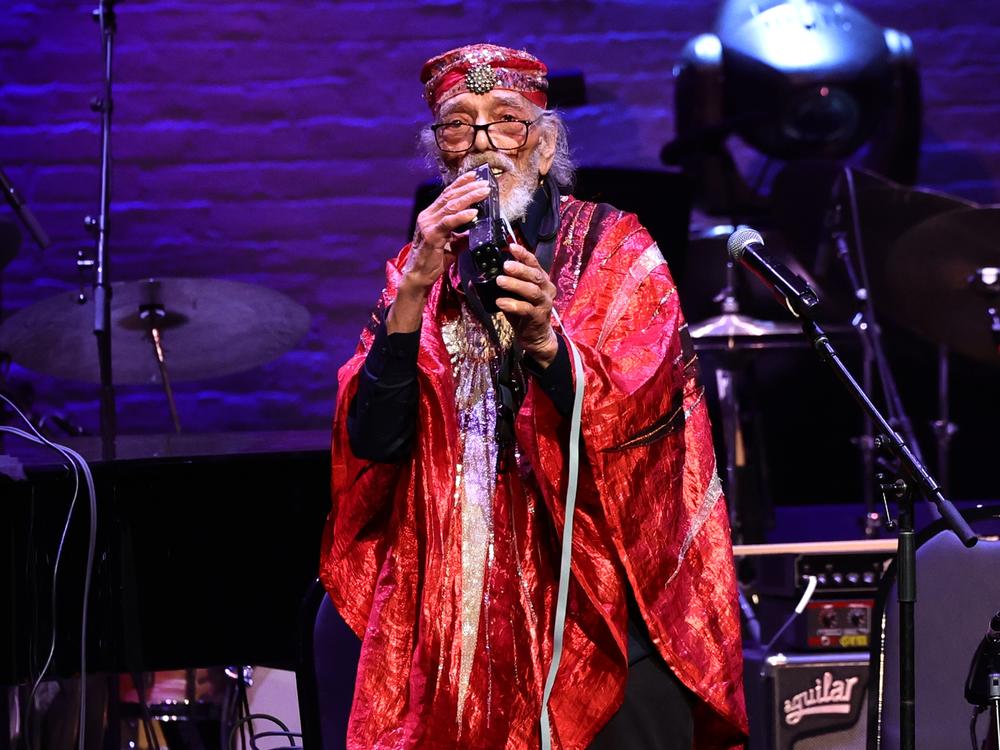Section Branding
Header Content
Marshall Allen and Chucho Valdés included in 2025 class of NEA Jazz Masters
Primary Content
A saxophonist of otherworldly gusto, two pianists of impulsive eloquence and a critic with a pen nearly as sharp as his ears — these are just a few choice epithets for the 2025 class of NEA Jazz Masters, announced this morning by the National Endowment for the Arts.
The four new inductees — Marshall Allen, Marilyn Crispell, Chucho Valdés and Gary Giddins — will each receive $25,000 as part of their NEA Jazz Masters fellowship, which is often described as the nation’s highest honor for jazz. According to tradition, they will also be honored in a gala NEA Jazz Masters Tribute Concert next spring, presented in collaboration with the John F. Kennedy Center for the Performing Arts in Washington.
“This class of NEA Jazz Masters represents the finest in free thinking musicians,” pianist Jason Moran, The Kennedy Center’s Artistic Director for Jazz, says in a press statement. “Each has been an active and integral part of communities that have pushed the music forward to new heights.”
Allen fits that description and then some, as legacy bandleader of the Sun Ra Arkestra for nearly 30 years, and an indefatigable alto saxophonist in its ranks for more than 65. Born in Louisville, Ky., he is the senior member of the new NEA Jazz Masters class by a healthy margin: He turned 100 in May and has been basking in a celebratory spotlight ever since. But Allen, still a volatile and riveting improviser, isn’t the type to rest on his laurels. He’ll lead the Arkestra at the Newport Jazz Festival on Aug. 2 and continue on a tour that winds back to Philadelphia, their home turf, on Aug. 18.
Crispell, 77, was born in Philadelphia and raised in Baltimore, though she has lived for decades in Woodstock, N.Y. With a personal expression at the piano ranging from crystalline beauty to eruptive ferocity, she’s been a prominent figure in the avant-garde for more than 40 years — the early part of which she spent in the acclaimed Anthony Braxton Quartet. Her own prolific output stretches across some 60 albums, the most recent of which, spi-raling horn, was released this spring.
Valdés, 82, is an exalted eminence of Afro-Cuban music — a founding member of Orquesta Cubana de Música Moderna and co-founder of the trailblazing fusion spinoff Irakere, which won a Grammy for Best Latin Recording in 1980. Valdés has also racked up a handful of Grammys as a solo artist, and presides over a Cuban jazz scene shaped in no small part by his example. Two years ago, he reunited with an old Irakere bandmate, multi-reedist and 2005 NEA Jazz Master Paquito D’Rivera, to release I Missed You Too! — its title nodding to their estrangement after D’Rivera’s defection to the United States more than 40 years ago.
As for Giddins, 76, he is the 2025 recipient of the A.B. Spellman NEA Jazz Masters Fellowship for Jazz Advocacy, awarded each year to a figure whose contribution occurs mainly off the bandstand. A longtime critic with The Village Voice, he has also authored a two-volume biography of Bing Crosby and the acclaimed collection Visions of Jazz. “Critics begin and end as fans,” Giddins writes in a statement. “Our lives have been made infinitely better by this eternally absorbing, transfiguring music. I could not be more gratified by the NEA’s recognition, but to paraphrase [pianist] John Lewis, who famously said, ‘The reward for playing jazz is playing jazz,’ the reward for loving jazz is loving jazz.”

